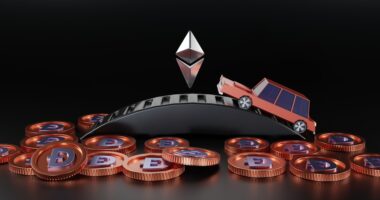In the rapidly evolving landscape of non-fungible tokens (NFTs), community managers have emerged as pivotal figures, serving as the bridge between creators and collectors. Their primary responsibility is to cultivate a vibrant and engaged community that not only supports the NFT project but also amplifies its reach and impact. This role requires a unique blend of skills, including communication, marketing, and a deep understanding of the NFT ecosystem.
Community managers are tasked with fostering relationships, addressing concerns, and ensuring that the community feels valued and heard. They often act as the voice of the project, articulating its vision and goals while also gathering feedback from community members to inform future developments. Moreover, NFT community managers must navigate the complexities of a decentralized environment where traditional hierarchies are often absent.
They are responsible for creating a sense of belonging among diverse participants, which can include artists, collectors, investors, and enthusiasts from various backgrounds. This involves not only managing day-to-day interactions but also strategizing long-term initiatives that align with the community’s interests and aspirations. By facilitating discussions, organizing events, and providing educational resources, community managers play a crucial role in enhancing the overall experience for members.
Their efforts contribute significantly to building trust and loyalty, which are essential for the sustainability of any NFT project.
Key Takeaways
- NFT community managers play a crucial role in facilitating communication and engagement within the community, as well as representing the brand and its values.
- Building a strong community requires active listening, responding to feedback, and creating a sense of belonging and inclusivity among members.
- Creating engaging content and activities, such as contests, giveaways, and virtual events, can help maintain interest and participation within the community.
- Fostering collaboration and connection among community members can lead to a more vibrant and supportive environment for all involved.
- Leveraging social media and online platforms is essential for reaching and connecting with a wider audience, as well as for sharing updates and engaging with community members.
- Tracking and analyzing community engagement metrics can provide valuable insights for refining strategies and identifying areas for improvement.
- Adapting strategies for long-term growth involves staying attuned to the evolving needs and preferences of the community, as well as being open to experimentation and innovation.
Building and Nurturing a Strong Community
The foundation of any successful NFT project lies in its community, making the process of building and nurturing this group paramount. A strong community is characterized by active participation, shared values, and a collective sense of purpose. To achieve this, community managers must first identify the core values that resonate with potential members.
This involves understanding the motivations behind why individuals are drawn to NFTs—be it for investment opportunities, artistic expression, or technological innovation. By aligning the project’s mission with these values, community managers can attract like-minded individuals who are more likely to engage meaningfully. Once a community is established, nurturing it becomes an ongoing endeavor that requires consistent effort and attention.
This can be achieved through regular communication, transparency about project developments, and creating spaces for members to share their thoughts and ideas. Community managers should prioritize inclusivity, ensuring that all voices are heard and valued. This can involve hosting AMAs (Ask Me Anything sessions), feedback loops, or even informal gatherings where members can connect on a personal level.
By fostering an environment where individuals feel comfortable expressing themselves, community managers can cultivate a sense of belonging that encourages long-term commitment and participation.
Creating Engaging Content and Activities

Content creation is a vital aspect of maintaining an active and engaged NFT community. Community managers must develop a diverse array of content that resonates with their audience while also reflecting the project’s ethos. This can include educational materials that demystify NFTs for newcomers, behind-the-scenes insights into the creative process, or updates on upcoming drops and events.
Engaging content not only informs but also entertains, sparking conversations and encouraging members to share their thoughts and experiences. By leveraging various formats—such as videos, podcasts, infographics, and articles—community managers can cater to different preferences within their audience. In addition to informative content, organizing activities that foster interaction is essential for keeping the community vibrant.
This could involve hosting virtual meetups, art contests, or collaborative projects that allow members to showcase their talents and creativity. Gamification elements, such as rewards for participation or challenges that encourage members to engage with one another, can also enhance the overall experience. By creating opportunities for members to connect over shared interests and passions, community managers can strengthen relationships within the community while simultaneously driving engagement with the NFT project itself.
Fostering Collaboration and Connection
Collaboration is at the heart of many successful NFT communities, as it encourages creativity and innovation among members. Community managers play a crucial role in fostering an environment where collaboration is not only welcomed but actively encouraged. This can be achieved by creating platforms for members to share their ideas and projects, whether through dedicated channels on social media or forums specifically designed for brainstorming and feedback.
By facilitating these interactions, community managers can help spark new initiatives that may not have emerged in isolation. Furthermore, fostering connections between members can lead to valuable partnerships that enhance the overall ecosystem of the NFT project. Community managers should actively promote networking opportunities by highlighting member achievements or organizing collaborative events where individuals can work together on creative endeavors.
This not only strengthens the bonds within the community but also amplifies the visibility of individual contributions. As members collaborate on projects or share resources, they create a sense of camaraderie that reinforces their commitment to the community and its goals.
Leveraging Social Media and Online Platforms
In today’s digital age, social media and online platforms are indispensable tools for NFT community managers seeking to expand their reach and engage with their audience effectively. These platforms provide an accessible means for community members to connect with one another while also allowing managers to disseminate information quickly and efficiently. By utilizing popular channels such as Twitter, Discord, Instagram, and Telegram, community managers can create dynamic spaces where discussions flourish and ideas are exchanged freely.
Each platform offers unique features that can be leveraged to enhance engagement—be it through live streams on Instagram or real-time chats on Discord. Moreover, social media serves as a powerful marketing tool for NFT projects. Community managers can harness these platforms to promote upcoming drops, share success stories from within the community, or highlight collaborations with artists and creators.
Engaging content such as polls, quizzes, or interactive posts can further stimulate participation while also providing valuable insights into member preferences. By maintaining an active presence across multiple platforms, community managers can ensure that their project remains top-of-mind for both current members and potential newcomers.
Tracking and Analyzing Community Engagement

To effectively manage an NFT community, it is essential to track and analyze engagement metrics regularly. Community managers should establish key performance indicators (KPIs) that align with their goals—be it measuring participation rates in events, monitoring social media interactions, or assessing member retention over time. By employing analytics tools available on various platforms, managers can gain valuable insights into what resonates with their audience and what areas may require improvement.
This data-driven approach allows for informed decision-making that can enhance overall community engagement. Additionally, qualitative feedback from community members is equally important in understanding their experiences and expectations. Surveys or feedback forms can be utilized to gather insights directly from participants about what they enjoy most about the community or what changes they would like to see implemented.
By combining quantitative data with qualitative feedback, community managers can develop a comprehensive understanding of their audience’s needs and preferences. This ongoing analysis not only informs future strategies but also demonstrates to members that their opinions are valued and taken into consideration.
Adapting Strategies for Long-Term Growth
The NFT landscape is characterized by rapid change and evolution; therefore, adaptability is crucial for sustaining long-term growth within a community. Community managers must remain vigilant in monitoring industry trends and shifts in member interests to ensure that their strategies remain relevant. This may involve pivoting content themes based on emerging technologies or adjusting engagement tactics in response to member feedback.
By staying attuned to both internal dynamics within the community and external market influences, managers can proactively address challenges while seizing new opportunities for growth. Furthermore, fostering a culture of continuous improvement within the community is essential for long-term success. Community managers should encourage experimentation by inviting members to propose new ideas or initiatives that could enhance engagement or collaboration.
By empowering individuals to take ownership of their contributions, managers can cultivate a sense of shared responsibility for the community’s success. This collaborative spirit not only strengthens bonds among members but also positions the community as an innovative force within the broader NFT ecosystem—one that is capable of adapting to change while remaining true to its core values and mission.
FAQs
What is an NFT community manager?
An NFT community manager is responsible for building and managing a community of NFT enthusiasts, collectors, and creators. They engage with the community, facilitate discussions, and drive growth and engagement within the NFT space.
What are the responsibilities of an NFT community manager?
The responsibilities of an NFT community manager include creating and implementing community engagement strategies, moderating online forums and social media channels, organizing events and meetups, and fostering a positive and inclusive community culture.
How do NFT community managers drive engagement?
NFT community managers drive engagement by creating and curating valuable content, facilitating discussions, organizing contests and giveaways, and fostering meaningful connections within the community. They also seek feedback from the community and implement initiatives to address their needs and interests.
What strategies do NFT community managers use to promote growth?
NFT community managers promote growth by collaborating with influencers and industry leaders, organizing educational workshops and webinars, and leveraging social media and other digital platforms to reach a wider audience. They also work on building partnerships and alliances to expand the community’s reach.
Why are NFT community managers important for the NFT space?
NFT community managers play a crucial role in fostering a vibrant and engaged community within the NFT space. They help to build trust, drive adoption, and promote the value of NFTs by creating a supportive and inclusive environment for collectors, creators, and enthusiasts.





